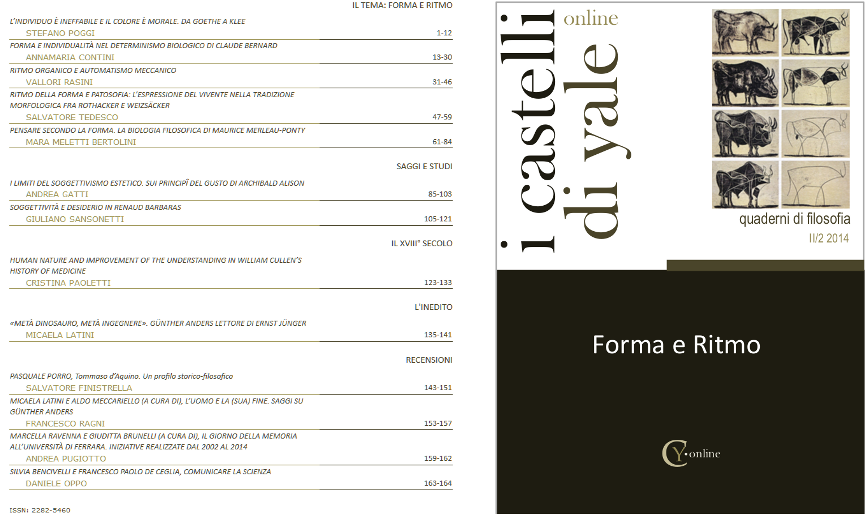<i>RITMO ORGANICO E AUTOMATISMO</i>
DOI:
https://doi.org/10.15160/2282-5460/969Keywords:
Storia della filosofia, Ritmo, Buytendijk, Plessner, WeizsäckerAbstract
A validate tradition in contemporary philosophy and biology connects the concept of rhythm to the concept of living being. Basically, rhythm means variability in invariability, change in stability, irregularity in regularity, and it always stands in relation to the “form” of the living body. The physiologist J.J. Buytendijk supports this position with interesting proofs, and Helmuth Plessner, an eminent philosopher of anthropology, accepts and endorses this idea. For his own part, Viktor von Weizsäcker, the promoter of anthropological medicine, in his biological theory of Gestaltkreis agrees in correlating rhythm and form. This idea of rhythm is in contrast with the mechanical automatism traditionally ascribed to inanimate bodies. But Arnold Gehlen – an exponent, along with Plessner, of contemporary philosophical anthropology – proposes a peculiar concept of rhythm, which in his view stands in continuity (not in contrast) with automatism, thus furnishing evidence of the disposition to technology in human being: only as an artificial organism human nature can survive. A very controversial provocation.


